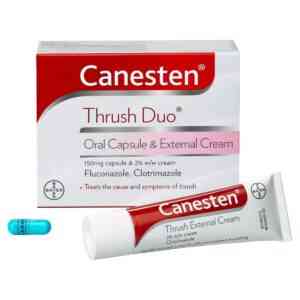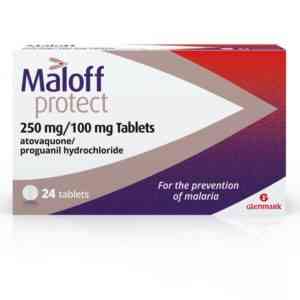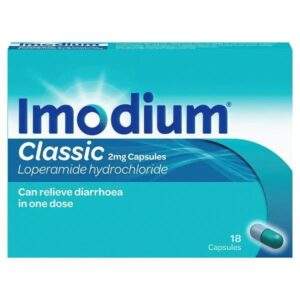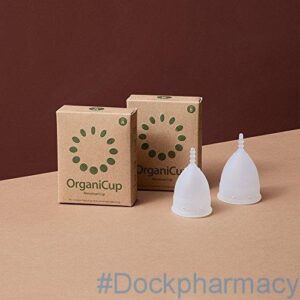Gina 10 micrograms Vaginal Tablets – Estradiol Vaginal Tablets, 24
Treatment of vaginal dryness in postmenopause women over 50
Treats the cause as well as the symptoms
Clinically proven treatment
Active Ingredient: Estradiol 10mcg
Gina is a vaginal tablet and contains estradiol.
- Estradiol is a female sex hormone.
- It belongs to a group of hormones called oestrogens.
- It is exactly the same as the estradiol produced by the ovaries of women.
Original price was: £29.99.£24.49Current price is: £24.49.
CompareCompare- Estradiol is a female sex hormone.
- It belongs to a group of hormones called oestrogens.
- It is exactly the same as the estradiol produced by the ovaries of women.
- Description
- Brand
- How To Use
- Product Details
- Side Effects
- Ingredients
- How to Store
- Patient Information leaflet
- Questions & Answers (2)
Gina 10 micrograms Vaginal Tablets – Estradiol Vaginal Tablets, 24
If you’re a postmenopausal woman over the age of 50, Gina 10 Microgram Vaginal Tablets can help. This HRT (estradiol-containing) treatment is specifically designed to bring relief from troublesome symptoms caused by oestrogen deficiency – dryness, soreness, itching, burning and discomfort during sexual activity.
You don’t have to suffer in silence any longer; with just one vagina tablet, taken directly into the vagina using an applicator provided in the pack, you can begin to experience relief from your symptoms. And with superior advantage of having anti-inflammatory properties that help protect against irritation for fewer and shorter episodes of vaginal inflammation simply by allowing the healing process to start promptly after administration, your most intimate area stays healthy and in balance.
Don’t let vaginal changes due to menopause hold you back any longer. Get quick relief that allows you to move freely with Gina Vaginal Tablets today.
What is Gina Vaginal Tablets?
Gina vaginal tablets, a local vaginal Hormone Replacement Therapy (HRT) medication, assists with menopausal symptoms in the vagina such as dryness or irritation. Known medically as ‘vaginal atrophy’, it is caused by an oestrogen reduction after menopause and can lead to other discomforts like soreness/irritation, itching/burning sensations & painful intercourse.
Who can use Gina?
Gina 10 micrograms Vaginal Tablets are used to treat vaginal atrophy symptoms in postmenopausal women over the age of 50, who have not had a period in at least a year.
What is menopause?
- Menopause is when your periods stop due to lower hormone levels. This usually happens between the ages of 45 and 55.
- It can sometimes happen earlier naturally. Or for reasons such as surgery to remove the ovaries (oophorectomy) or the uterus (hysterectomy), cancer treatments like chemotherapy, or a genetic reason. Sometimes the reason is unknown.
- Perimenopause is when you have symptoms before your periods have stopped. You reach menopause when you have not had a period for 12 months.
- Menopause and perimenopause can cause symptoms like anxiety, mood swings, brain fog, hot flushes and irregular periods. These symptoms can start years before your periods stop and carry on afterwards.
- Menopause and perimenopause symptoms can have a big impact on your life, including relationships and work.
- There are things you can do to help with symptoms. There are also medicines that can replace the missing hormones and help relieve your symptoms.
What is Postmenopause?
After a full year without a period, you are now officially in postmenopause. This stage marks the end of your reproductive life as hormone levels remain low and eggs no longer being produced by the ovaries rule out any pregnancy possibilities.
What are the symptoms of post-menopausal Vaginal atrophy?
Post-menopausal women are often faced with vaginal atrophy, an uncomfortable and frequently unspoken condition caused by reduced oestrogen levels.
Common symptoms include:
- Dryness of the vagina
- Burning and/or itching of the vagina
- Pain during sex
- Spotting or bleeding
- Going to the bathroom more frequently
- Painful urination
- Burning during urination
Can someone who is pregnant or breastfeeding use Gina 10 micrograms Vaginal Tablets?
Women who are pregnant or breast-feeding should not use Gina.
Gina 10 micrograms Vaginal Tablets Reviews
After using Gina 10 micrograms Vaginal Tablets, it’s helpful to let others know about your experience. Reviews of an item help other users know that medicines received have helped the condition it is claimed for, how well the treatment worked or any issues to be aware of. We invite our users to leave a review of both their treatment and of the service provided. Click on the reviews tab to see if there has been feedback on this item.
What is the price of Gina 10 micrograms Vaginal Tablets?
The price of Gina 10 micrograms Vaginal Tablets is £24.49
Where can you buy Gina 10 micrograms Vaginal Tablets?
You can buy Gina 10 micrograms Vaginal Tablets at Dock Pharmacy Essex UK, UK Online Pharmacy.
Can you buy Gina 10 micrograms Vaginal Tablets Over the counter?
Gina 10 micrograms Vaginal Tablets is available to buy over the counter. You do not need a prescription to buy Gina Vaginal Tablets but you might be asked some questions about your medical health before you add it to your basket.
Brand
Gina
How To Use
How to use Gina
Always use this medicine exactly as described in this leaflet or as your pharmacist has told you. Check with your pharmacist if you are not sure.
Gina is a tablet for vaginal use only. Each vaginal tablet comes preloaded in a single-use applicator.
Using intravaginal applicators can sometimes cause minor injury in your vagina, especially if inserted or removed without care or if your vaginal atrophy (thinning) is severe. Speak to your doctor or pharmacist if you experience any difficulties with using the vaginal applicator, as your doctor may be able to prescribe another vaginal oestrogen preparation that is more suitable for you.
How much to use
- Initial dose:
Use one vaginal tablet each day for the first 2 weeks of treatment
- Maintenance Dose:
Use one vaginal tablet twice a week. Leave 3 or 4 days between each dose
You can use it at any time of the day, but you should try and use it at the same time for each application.
If you want to restart using Gina
You can restart using Gina at any time provided the product is still suitable for use (see section 2) and your overall health is unchanged.
If you are experiencing bothersome symptoms again after a break from treatment with Gina, it is recommended to restart treatment at the starting dose for 2 weeks, followed by the maintenance dose.
Do NOT use more than the recommended dose.
Using this medicine
You can start using Gina on any day which is best for you.
The ‘User instructions’ at the end of the leaflet tell you how to use Gina. Read these instructions carefully before you start using Gina.
If you use more Gina than you should
Using more than the usual dose for a short time is unlikely to be harmful.
Speak to your doctor if you think this dose is too strong or not strong enough to relieve your symptoms adequately. The dose of Gina should not be increased.
If you forget to use Gina
If you forget a dose, use the medicine as soon as you remember. Do not use a double dose to make up for a forgotten dose.
If you want to stop using Gina
You can stop using Gina at any time, however, symptoms often return when you stop. Speak to your doctor if you want to try an alternative treatment.
If you need to have surgery
If you are planning to have surgery, tell your surgeon that you are using Gina. You may need to stop using Gina about 4 to 6 weeks before the operation to reduce the risk of a blood clot. Ask your doctor when you can start using this medicine again.
If you have any further questions on the use of this medicine, ask your pharmacist.
Product Details
What you need to know before you use Gina
Medical history and Pharmacy Reviews
Before you start using Gina, your pharmacist will ask about your own and your family’s medical history.
They may also ask you about your menopause and what symptoms you have had.
This is to make sure that Gina is suitable for you and that you do not need to see your doctor before using Gina or for any other treatments that may be more suitable.
Once you have started using Gina you should review your treatment regularly with your pharmacist. Let your doctor know that you are using Gina at your next routine appointment. The use of HRT carries some risks, which need to be considered when deciding whether to start using it, or whether to carry on using it. You should go for regular breast and cervical screening as recommended by your doctor. Do not use Gina if any of the following applies to you. If you are not sure about any of the points below, talk to your pharmacist before using Gina. Do not use Gina if: • You are allergic (hypersensitive) to estradiol or any of the other ingredients of Gina (listed in section 6 ‘Contents of the pack and other information’). • You have or have ever had womb or ovarian cancer, or you have symptoms such as vaginal bleeding, or pain, bloating or swelling in your lower abdomen or pelvis that you have not told your doctor about. • You have had any vaginal or genital bleeding since your periods stopped due to the menopause. • You have recent or suspected endometrial hyperplasia (or e.g. if you have been referred for an ultrasound of your womb and are waiting for the results). • You have previously been treated with oestrogen only HRT (without progestogen) and you have not had your womb removed (hysterectomy). • You have any change in the look/feel of the vulval area such as thickening or a lump, or if you have noticed any shrinking or scarring in this area. • You have a current vaginal infection before starting treatment with Gina. • You have a condition called ‘vulval dermatoses’ or you have any genital skin disorders such as severe vaginal itching, or itchy patches or rash. • You have or have ever had breast cancer, or if you are suspected of having it. • You have or have ever had a blood clot in a vein (thrombosis), such as in the legs (deep venous thrombosis) or the lungs (pulmonary embolism). • You have or have recently had a disease caused by blood clots in the arteries, such as a heart attack, stroke or angina. • You have a blood clotting disorder (such as protein C, protein S or antithrombin deficiency). • You have or have ever had a liver disease and your liver function tests have not returned to normal. • You have a rare blood problem called ‘porphyria’, which is passed down in families (inherited). You may need to see your doctor before using Gina if any of the following apply to you. Tell your pharmacist if: • You have a history of endometriosis. • You have a history of endometrial hyperplasia. • You are receiving a type of HRT (including tablets or patches) that circulates in the blood. • You are switching from another vaginal oestrogen HRT. Warnings and precautions Talk to your doctor or pharmacist if any vaginal infection develops while you are using Gina. Stop using Gina immediately and seek prompt advice from your doctor if you notice any of the following during treatment: • You develop any of the conditions listed in the above section ‘Do not use Gina’. • You develop any new vaginal bleeding, spotting or itching. • If you have endometriosis and your symptoms have come back. • Swollen face, tongue and/or throat and/or difficulty swallowing or hives, together with difficulty in breathing which are suggestive of angioedema. You must also seek prompt advice from your doctor if you notice any of the following during treatment: • Yellowing of your skin or the whites of your eyes (jaundice). These may be signs of a liver disease. • A large rise in your blood pressure (symptoms may be headache, tiredness, dizziness). • Migraine-like headaches which happen for the first time. • You become pregnant. Tell your doctor you are using this medicine if you have or have ever had any of the following, and seek advice from them if any of these conditions return or get worse during treatment: • Uterine fibroids (Leiomyoma); • Increased risk of developing blood clots (e.g. you are unable to walk for a long time because of major surgery/injury/illness, you are overweight with a BMI greater than 30 kg/m², any of your close relatives has ever had a blood clot in the legs or lungs); • Increased risk of getting womb, ovarian or breast cancer (e.g. having a close relative who has had any of these cancers); • High blood pressure; • Liver disorders, such as a benign liver tumour; • Diabetes; • Gallstones; • Migraines or severe headaches; • Systemic lupus erythematosus, (SLE); • Epilepsy; • Asthma; • A disease affecting the eardrum and hearing (otosclerosis); • A very high level of fat in your blood (triglycerides); • Fluid retention due to cardiac or kidney problems; • Hereditary and acquired angioedema. Cancer of the womb lining (endometrial cancer) and excessive thickening of the womb lining (endometrial hyperplasia) Taking oestrogen-only systemic HRT for a long time can increase the risk of developing cancer of the womb lining (the endometrium). It is uncertain whether there is a similar risk with Gina when it is used for repeated or long term (more than one year) treatments. However, Gina has been shown to have very low absorption into the blood, and therefore the addition of a progestogen is not necessary. If you get any vaginal bleeding e.g. breakthrough bleeding or spotting, especially after using the product for some time, it may be nothing to worry about but you should stop using Gina and seek prompt advice from your doctor. It could be a sign that your endometrium has become thicker. General Information – What you should know about HRT Risks associated with HRT Gina is a local vaginal HRT. Other HRT medicines which circulate in the blood and are used to treat hot flushes and other menopausal symptoms are known as systemic HRT. These are known to increase the risk of some conditions occurring, especially when used for a long time. It is thought that the risk of these conditions may not increase by as much with Gina as with systemic HRT, but this is not known for sure: See section 4 for more detail on risk/side effects with systemic HRT. • Breast cancer: Evidence suggests that using Gina does not increase the risk of breast cancer in women who had no breast cancer in the past. It is not known if Gina can be safely used in women who had breast cancer in the past. • Ovarian cancer. • Blood clots in a vein (thrombosis). • Heart disease (heart attack): For women taking oestrogen-only therapy there is no increased risk of developing heart disease. • Stroke. You should speak with your pharmacist or doctor if you are concerned. Children and adolescents Do not give this medicine to children or adolescents. This medicine is only intended for use in postmenopausal women. Other medicines and Gina Please tell your pharmacist if you are using or have recently used any other medicines, including medicines obtained without a prescription, herbal medicines or other natural products. Gina is used for a local treatment in the vagina and is not likely to affect other medicines. However, it may affect other vaginally applied treatments. Ask your pharmacist for advice if you are unsure. Pregnancy and breast-feeding Women who are pregnant or breast-feeding should not use Gina. Driving and using machines No known effect. You may continue to drive or use machines, as long as you feel well enough to do
Side Effects
Possible side effects
Like all medicines, Gina can cause side effects, although not everybody gets them. Stop using this medicine and seek urgent medical attention if you have a serious allergic reaction to Gina: A serious allergic reaction may occur only very rarely. Signs may include: • Suddenly feeling unwell with sweating; • Vomiting; • Difficulty in breathing; • Rapid heartbeat or feeling dizzy. Stop using Gina and seek prompt advice from your doctor if: •You develop any new vaginal bleeding, spotting or itching. • You have endometriosis and your symptoms have come back. •A vaginal infection develops while you are using Gina. Other side effects reported are listed below. Speak to your doctor or pharmacist if these continue or become troublesome. Common: may affect up to 1 in 10 people • Headache; • Stomach pain; • Vaginal bleeding, discharge or discomfort. Uncommon: may affect up to 1 in 100 people • An infection of the genitals caused by a fungus; • Nausea (Feeling sick); • Rash; • Weight increase; • Hot flush; • High blood pressure. Very rare: may affect up to 1 in 10,000 people • Diarrhoea; • Water retention; • Worsened migraines; • Generalised hypersensitivity (e.g. anaphylactic reaction/shock). Side effects reported with systemic HRT treatments: HRT medicines which circulate in the blood and used to treat hot flushes and other menopausal symptoms are known as ‘systemic HRT’. These medicines include oral tablets and patches (transdermal patches) or gels which go on the skin. Systemic HRT increases the risk of some conditions occurring, especially when used for a long time (see below). Gina contains a low dose of oestrogen which works locally in the vagina. Gina is classed as a local vaginal HRT, not a systemic HRT. It is thought that the risks associated with local HRT’s such as Gina are lower than those associated with systemic HRT’s, although it is not known for sure.. You should speak with your doctor or pharmacist if you are concerned. Breast cancer Evidence suggests that using Gina does not increase the risk of breast cancer in women who had no breast cancer in the past. It is not known if Gina can be safely used in women who had breast cancer in the past. Check your breasts regularly and see your doctor if you notice any changes such as: • dimpling or soreness of the skin (sometimes looking like an orange peel); • changes in the nipple (such as discharge or the nipple turns inwards); • unusual swelling in all or part of the breast, or any lumps or thickening you can see or feel. You should also join mammography screening programmes when offered to you. Ovarian cancer Ovarian cancer is rare – much rarer than breast cancer. The use of oestrogen-only systemic HRT has been associated with a slightly increased risk of ovarian cancer. Compare The risk of ovarian cancer varies with age. For example, in women aged 50 to 54 who do not take HRT, about 2 women in 2,000 will be diagnosed with ovarian cancer over a 5-year period. For women who have been taking HRT for 5 years, there are about 3 cases per 2,000 users (i.e. about 1 extra case). Blood clots in a vein (thrombosis) The risk of blood clots in the veins is about 1.3 to 3 times higher in systemic HRT users than in nonusers, especially during the first year of taking it. Blood clots can be serious, and if one travels to the lungs, it can cause chest pain, breathlessness, fainting or even death. You are more likely to get a blood clot in your veins as you get older. Tell your doctor if any of these situations applies to you: • You are unable to walk for a long time because of major surgery, injury or illness (see also section 3, ‘If you need to have surgery’). • You are seriously overweight (BMI greater than 30 kg/m²). • You have any blood clotting problem that needs long-term treatment with a medicine used to prevent blood clots. • If any of your close relatives has ever had a blood clot in the leg, lung or another organ. • You have systemic lupus erythematosus (SLE). • You have cancer. Signs of a blood clot to look out for include: • painful swelling and redness of the legs; • sudden chest pain; • difficulty in breathing. If you observe any signs of a blood clot, stop using Gina and see your doctor immediately. Compare Looking at women in their 50s who do not take HRT, on average, over a 5-year period, 4 to 7 in 1,000 would be expected to get a blood clot in a vein. For women in their 50s who have been taking oestrogen-only HRT for over 5 years, there will be 5 to 8 cases in 1,000 users (i.e. 1 extra case). Heart disease (heart attack) For women taking oestrogen-only therapy there is no increased risk of developing heart disease. Stroke The risk of getting stroke is about 1.5 times higher in HRT users than in non-users. The number of extra cases of stroke due to use of HRT increases with age. Compare Looking at women in their 50s who do not take HRT, on average, 8 in 1,000 would be expected to have a stroke over a 5-year period. For women in their 50s who take HRT, there will be 11 cases in 1,000 users, over 5 years (i.e. 3 extra cases). Other conditions HRT will not prevent memory loss. There is some evidence of a higher risk of memory loss in women who start using HRT after the age of 65. Speak to your doctor for advice. The following side effects have also been reported with systemic HRT treatments: • Gall bladder disease; • Various skin problems such as: – discolouration of the skin especially of the face or neck known as ‘pregnancy patches’; – painful reddish skin nodules; – rash with target-shaped reddening or sores. For more information about these side effects, see Section 2. Reporting of side effects If you get any side effects, talk to your doctor or pharmacist. This includes any possible side effects not listed in this leaflet. You can also report side effects directly via the Yellow Card Scheme at: www.mhra.gov.uk/yellowcard or search for MHRA Yellow Card in the Google Play or Apple App Store. By reporting side effects, you can help provide more information on the safety of this medicine.
Ingredients
What Gina contains
– The active substance is estradiol 10 micrograms (as estradiol hemihydrate).
Each vaginal tablet contains 10 micrograms estradiol (as estradiol hemihydrate).
– Other ingredients are: hypromellose, lactose monohydrate, maize starch and magnesium stearate. – The film-coating contains: hypromellose and macrogol 6000.
How to Store
How to store Gina
Keep this medicine out of the sight and reach of children. Do not refrigerate.
Do not use this medicine after the expiry date which is stated on the carton and blister after ‘EXP’. The expiry date refers to the last day of that month.
Do not throw away any medicines via wastewater or household waste.
Ask your pharmacist how to throw away medicines you no longer use.
These measures will help protect the environment. This medicine may cause risk to the aquatic environment.
Patient Information leaflet
Click here for the Patient Information leaflet
Please read before using the product
There are no answers to this question, be the first to respond.
You Might Also Like
Original price was: £16.75.£14.35Current price is: £14.35.
- For vaginal dryness.
- Vagisan MoistCream contains no hormones
- Helps maintain a natural pH
- It may be used during pregnancy and while breastfeeding.
Learn More
Original price was: £16.75.£14.35Current price is: £14.35.
- Availability: in stock
Original price was: £13.99.£12.49Current price is: £12.49.
- Hormone-free
- With soothing lipids
- Keeps the vagina soft and supple
- Long lasting soothing effect
- Clinically proven
Original price was: £13.99.£12.49Current price is: £12.49.
- Availability: in stock
Other Products From This Seller
Original price was: £34.99.£24.95Current price is: £24.95.
Wahl Extreme Grip Beard Trimmer Precision Grooming with Comfort Grip and Adjustable Cutting Lengths Take Control of Your Grooming with the Wahl Extreme Grip Beard Trimmer Transform your grooming routine with the Wahl Extreme Grip Beard Trimmer, designed for precision, comfort, and versatility. Whether you’re sculpting a sharp beard line, maintaining stubble, or styling longer […]
Learn MoreOriginal price was: £34.99.£24.95Current price is: £24.95.
- Availability: in stock
Original price was: £23.99.£17.95Current price is: £17.95.
WAHL Vogue Corded Hair Clipper for Men Professional Precision with Adjustable Taper Lever and High-Carbon Steel Blades Transform Your Grooming Routine with the WAHL Vogue Corded Hair Clipper for Men Elevate your grooming experience with the WAHL Vogue Corded Hair Clipper, a professional-grade grooming tool designed for men who value precision and performance. Whether you’re […]
Learn MoreOriginal price was: £23.99.£17.95Current price is: £17.95.
- Availability: in stock
Original price was: £30.00.£8.95Current price is: £8.95.
Wahl Peaky Blinders Beard Trimmer Gift Set Limited Edition Cordless Grooming Kit for Men Join the ranks of the Peaky Blinders with the Wahl Peaky Blinders Beard Trimmer Gift Set. This exclusive collaboration between Wahl and the iconic TV series offers a comprehensive grooming solution for the modern gentleman. Key Features: Rechargeable Cordless Trimmer: Equipped […]
Learn MoreOriginal price was: £30.00.£8.95Current price is: £8.95.
- Availability: in stock
Original price was: £54.63.£39.95Current price is: £39.95.
OMRON RS2 Wrist Blood Pressure Monitor Compact and Accurate BP Monitoring The OMRON RS2 Wrist Blood Pressure Monitor is a compact and user-friendly device designed for quick and accurate blood pressure and pulse rate measurements. Utilizing the oscillometric method, it ensures reliable readings with minimal user input. Key Features: Automatic Inflation: The device inflates the […]
Learn MoreOriginal price was: £54.63.£39.95Current price is: £39.95.
- Availability: in stock
Original price was: £69.99.£59.99Current price is: £59.99.
Omron M4 Intelli IT Blood Pressure Monitor Bluetooth-Enabled Upper Arm BP Monitor with Intelli Wrap Cuff The Omron M4 Intelli IT Blood Pressure Monitor is a clinically validated device designed for easy and accurate blood pressure monitoring at home. With Bluetooth connectivity, it seamlessly syncs your readings to the Omron Connect app, allowing you to […]
Learn MoreOriginal price was: £69.99.£59.99Current price is: £59.99.
- Availability: in stock
Original price was: £39.99.£33.95Current price is: £33.95.
Omron M2+ Upper Arm Blood Pressure Monitor The Omron M2+ Upper Arm Blood Pressure Monitor is a fully automatic device designed to provide quick and accurate blood pressure and pulse rate measurements. Utilizing the oscillometric method, it ensures reliable readings with minimal user input. Key Features: IntelliSense Technology: Automatically inflates the cuff to the ideal […]
Learn MoreOriginal price was: £39.99.£33.95Current price is: £33.95.
- Availability: in stock
Original price was: £19.99.£9.95Current price is: £9.95.
Ted Baker M Gift Set 30ml EDT Spray and 150ml Body Wash Experience the refined elegance of the Ted Baker M Gift Set, comprising a 30ml Eau de Toilette Spray and a 150ml Body Wash. This meticulously crafted set offers a harmonious blend of notes, encapsulating masculinity and sophistication. Ideal for gifting or personal indulgence, […]
Learn MoreOriginal price was: £19.99.£9.95Current price is: £9.95.
- Availability: in stock
Original price was: £33.00.£19.99Current price is: £19.99.
Iceberg Twice Pour Homme Eau de Toilette 125ml Gift Set Aromatic Fougère Fragrance for Men Discover the timeless elegance of Iceberg Twice Pour Homme Eau de Toilette 125ml Gift Set, a sophisticated aromatic fougère fragrance designed for the modern man. This exclusive gift set includes a 125ml Eau de Toilette, offering a complete scent experience […]
Learn MoreOriginal price was: £33.00.£19.99Current price is: £19.99.
- Availability: in stock
Original price was: £44.00.£28.95Current price is: £28.95.
Davidoff Cool Water Gift Set For Men, 2pc Gift set Dive into the invigorating essence of the ocean with the Davidoff Cool Water Gift Set for Men. This exclusive 2-piece set includes a 4.2 fl. oz. Eau de Toilette and a 2.5 fl. oz. After Shave Balm, offering a complete grooming experience that embodies freshness […]
Learn MoreOriginal price was: £44.00.£28.95Current price is: £28.95.
- Availability: in stock
Original price was: £19.95.£9.95Current price is: £9.95.
Ted Baker W Pink Gift Set 30ml EDT and 150ml Shower Gel Experience the elegance of Ted Baker W Pink Gift Set, comprising a 30ml Eau de Toilette and a 150ml Shower Gel. This exquisite set offers a harmonious blend of floral and woody notes, encapsulating femininity and sophistication. Ideal for gifting or personal indulgence, […]
Learn MoreOriginal price was: £19.95.£9.95Current price is: £9.95.
- Availability: in stock

























